Implementation of Condominium Association Board Rules and Regulations
What are Association Board Rules & Regulations?
It is critically important that condominium and homeowner association boards understand the distinction between the association declaration and the separate board “rules and regulations”. To confirm, the declaration, (and bylaws, which are part of the declaration) is recorded with the county, and is the central governing document of the association. Declarations cannot be amended or changed without an approval of a super-majority of the association owners.
However, board rules, which are voted on by the board only, are intended to supplement the declaration. The operative word being “supplement” because rules cannot contradict the declaration. These board rules typically govern day-to-day community issues in the building. Common subjects that could be covered in board rules include the following:
Unit remodeling
Leasing
Pets
Parking
Use and enjoyment of common areas
Violations/Fines
Governing Document Hierarchy
In brief explanation of a condominium association’s governing documents, an association declaration legally creates the condominium association and establishes the rights and/or restrictions of unit ownership. The condominium bylaws (which are a part of the declaration) govern the day-to-day operations and governance of the association. The declaration is drafted and recorded by the condominium developer before a board is ever elected. However, when the unit owner board takes over control of the condominium from the developer, there could be some gaps in the specificity of declaration that could be addressed by board rules. As such, the board has the capacity to fill in those gaps with additional rules for day-to-day living.
A great example of an important board rule is for unit construction or remodeling. Often a declaration will require board approval before a unit owner may begin renovating his/her unit. However, such a provision will often lack the necessary detail. A well-drafted board rule should provide that if the unit renovation requires a permit, the unit owner cannot begin the renovation unless and until the contractor plans and specifications are approved by the board in writing and the contractor provides a certificate of insurance.
While a board has wide discretion for implementing rules, each rule must be reasonable. “Reasonable” is not defined in the Illinois Condominium Property Act, but if ever challenged in court, the board must be able to establish the reasonableness of the rule. Further, the board rules must include detail regarding the rule enforcement process, and the levying of a fine against the offending unit owner. In other words, there needs to a clear protocol for what happens after an owner has been issued a notice of violation. (Please see separate article on the Rudolph Kaplan website regarding rule enforcement.)
It is important to note that if the declaration specifically addresses an issue, the board may not contradict or fundamentally change the declaration provision by adopting a rule. The only way to change a provision in a declaration is through an amendment that must be voted on by a super-majority of the unit owners, and recorded with the county. Otherwise, a board rule that is in direct conflict with the declaration could be subject to legal challenge and deemed unenforceable.
Often there is a fine line between a board rule that properly supplements the association declaration, and a board rule that contradicts the governing document. As another example, condominium declarations often allow unit owners to have domestic pets (cats and dogs). Boards may then wish to implement certain rules regarding pet ownership, such as limitations on certain common areas/hallways that can be used by an owner with his/her dog. Such rules serve to properly supplement, or fill in the gaps of the governing declaration. But what if the board also adopts a pet weight limit that restricts any dog from the building that weighs more than 20 pounds? The board’s position may be that the weight “limitation” does not necessarily contradict the declaration, but a canine loving unit owner (and his/her lawyer) may beg to disagree. As such, we recommend that a board engage competent legal counsel before adopting rules that could be perceived as conflicting with the governing documents.
Implementing Association Board Rules & Regulations
Once a board decides to implement a new rule or rules, the board must follow the process as set forth in Section 18.4 of the Illinois Condominium Property Act. There are 3 steps a board must take. First, the board must discuss and agree on language of a rule in written form. Second, the board must distribute the full text of the proposed rule at least ten days in advance of a unit owner meeting. Third, the board must vote on the proposed rule at the properly noticed unit owner meeting.
Even though the owners are entitled to notice of the meeting, and can attend the meeting, only the board votes on the proposed rules. Unit owners do not have a say in whether a board rule is approved or rejected. The purpose of the unit owner meeting is only to provide a forum for unit owners to provide feedback in which the board should take into consideration when voting.

